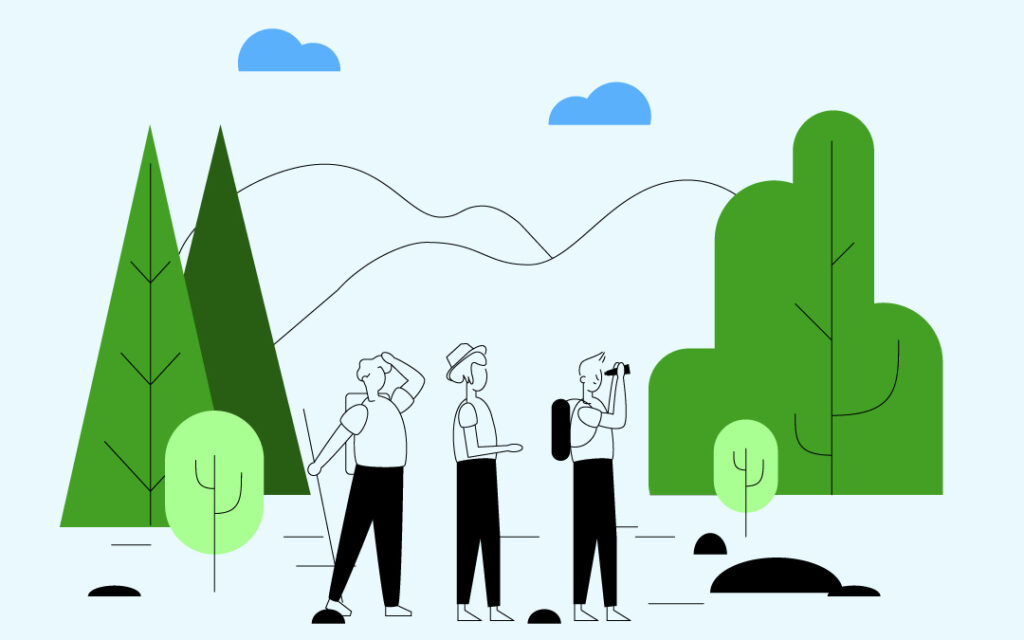Talking Purposeful, Global Leadership in a COVID-19 World: Interview with Emily Chang, Senior Executive
Talking Purposeful, Global Leadership in a COVID-19 World: Interview with Emily Chang, Senior Executive

An Interview with Senior Executive, Emily Chang: Purpose and Profit, Meaningful Global Leadership, Commercialization, Innovation, and Mentorship in a COVID-19 World
We sat down with Emily Chang, a Senior Executive with 20 years of global experience in Customer Experience, Business Strategy, Cross-Cultural Team Leadership, Change Management & Organizational Renewal, and Brand Building at enterprise organizations such as P&G, Apple, IHG, and Starbucks. Emily is in the midst of writing a book that focuses on ideas of purposeful leadership, community, and culture. In this interview, she shares insights and thoughts on her career and life path, the implications of this time on brand, commercialization strategies, marketing, and culture, as well as the kind of mindset leaders—young and established—should be adopting as this crisis continues to unfold.
It’s apparent that you’ve followed a rich and diverse career and life path. Can you tell us a bit about your journey?
I’ve tried to follow a path that offers opportunities for learning and joy. I started out pre-med and then found my way to business school, which opened the door to an internship at Procter & Gamble. My career really unfolded at P&G, where I had the opportunity to move across a range of business units over the course of 11 years: retail sales, international, upstream design, brand management, and marketing…These experiences were like the ultimate sampler platter of general management! I was then recruited by Apple for a dream job, helping establish the face of the brand in China, just when we were first opening stores. Then an incredible few years working for and with world-class leaders at InterContinental Hotels group, and then Starbucks…which eventually enabled our family to move from China to Seattle. Most recently, I’m considering family alongside career and providing my daughter the chance to experience living in America.
I feel incredibly lucky to have had such rich and joyful learning experiences so far. And importantly, I’ve discovered what I love to do. The opportunity to connect dots that haven’t been previously connected, unlocking new potential. What motivates me is adding value to people and to business. Regardless of industry or geography, realizing that potential gives me deep satisfaction.
While COVID-19 continues to affect the health and economies of countries across the globe, what do you think must be top of mind for executives at global enterprise companies?
I’ve been advising a number of leaders as they write their strategic plans, and three common themes have emerged.
- Exercise a new level of agile strategic thinking: We need to stop thinking of “post-COVID” as a solid milestone. It’s quite likely we’re not done with the after-effects of the virus and there’s not going to be a “new normal” as much as a series of “next normals”. COVID-19 has triggered a series of consumer and market shifts that will only give rise to further behavioral transformation. We will need to plan, engage, and lead with unprecedented agility.
- Allow shared purpose to unearth new capability: Living life with intention and purpose has been a huge passion of mine. It’s what I’m focused on in the book I’m writing. In the workplace, I’ve been so inspired by those who have pivoted their operations to serve a broader purpose. Sports and auto manufacturers are producing ventilators, while distilleries are pivoting to producing sanitizers. These companies seem to be identifying new capabilities, even as they challenge old sacred cows. They’re serving new needs and streamlining processes—and making money! They’ve discovered the beautiful, value-added intersection of purpose and profit.
- Interrogate the data: We must recognize that the world has changed. Consumer habits, media consumption, online behavior, and digital engagement have all taken a quantum leap. As we seek insights from our databases, we must exercise discernment and not allow old data to inform new decisions. Obsolete data isn’t that which was collected and shared in 2018… it’s as recent as January 2020.
What kind of leaders do we need to lead amidst a COVID and post-COVID world?
Leaders who balance head, heart, and soul will draw followership. Those who don’t just deliver business performance, but also nurture and advocate for their people (heart) and identify ways to do good while doing well (soul). I agree with the Business Roundtable; social leadership is a business imperative. That’s really the intent of my book. I wanted to share an example of someone in the business world embracing personal contribution because I truly value it and believe the social legacy we create resonates as much as our professional legacy. It’s going to be tough to drive a purpose-driven brand if you’re not a purpose-driven leader.
Selling in a time where uncertainty is the norm is a challenge. What’s your approach to shifting commercialization strategies right now? Does Marketing continue to market? Does Sales continue to sell?
It really comes back to purpose. Some brands are investing in heartfelt messages like “We’re all in this together” and, although those messages might be completely genuine, they can come across as generic because the purpose of the brand doesn’t necessarily align. First, you have to get clear about who you are and what you stand for. Then, you can communicate in a way that feels authentic and cohesive. I think McDonald’s hit the right chord here. They did a spot highlighting the workers who work all night, thanking them. It paid authentic tribute to the workers, but also communicated the message, “hey, we’re open”. Another recent spot I loved required a celebrity spokesperson to be a little vulnerable. Eva Longoria uses at-home hair color, providing an incredible product demo, a peek into her own home, and loads of credibility (e.g. she really uses the product herself!).
Many think of constraints as obstacles to innovation. But, creativity and innovation often thrive under constraint. Do you have a perspective on how global enterprises should be defining innovation today?
I think innovation requires the constant reinvention of the value we contribute to the world. Grounded in a deep commitment to who they are (their purpose), innovative companies unceasingly ask how they might improve their offering and disrupt their industry. Innovation tests the limits of and then transcends those perceived boundaries. This is a time to see, think, imagine, and do differently.
How do you see the ripple effect of this on culture and how we connect as global entities and communities? What are the long-term implications? How does this ripple out on the internal cultures of companies?
When we view trends over time, we often observe a pendulum effect. For instance, the deeper we move into the future of AI and ML, the more we discover a craving for hands-on learning and manual creation. We see close-knit communities struggling while physically apart, and leveraging technology to maintain togetherness. At the same time, communities that haven’t been close in the past are more connected than ever before. In our neighborhood, strangers are hiding painted rocks on the hill for others to find, infusing delight into each other’s lives even from afar. Pre-COVID, people would have been like, “Who are these people?” Now, we’re craving that sense of togetherness.
In terms of culture in the workplace, teams always learn faster than individuals. Progress unfolds when egos are set aside. When a company’s culture allows the best idea to win, the business serves customers better than ever. IKEA did some incredible, insightful work, leveraging ideas from their open source platform to make novel accessibility add-ons available via free download and 3D printing. This was a good idea for an underserved population that was also good for business.
What advice would you give to younger talent looking for work or early in their careers? How can they use this time to their advantage?
I think it’s about adopting a growth mindset vs. a scarcity mindset. Recently, my family took an RV trip across the western states. Instead of focusing on what we had lost, we asked ourselves, “What new opportunities have presented themselves?” I would ask young people today, “What’s your COVID story?” You’re living through something unique, something that hopefully people won’t live through again. And in the future, you will be asked, “What did you do during that time?”
So, what’s your answer going to be? With this in mind, you can more intentionally adopt a growth mindset. Are you going to say, “I sat at home in my PJs and got Zoom fatigue?” Whether it’s learning to make bread, sewing masks, or getting in an RV, this is your opportunity to write your story.
We will continue to look outside of our own agency for inspiration, advice, insights, and perspective on COVID-19 and the implications on business, brand, and culture.
Emotive Brand is a brand strategy and design agency based in Oakland, California.







